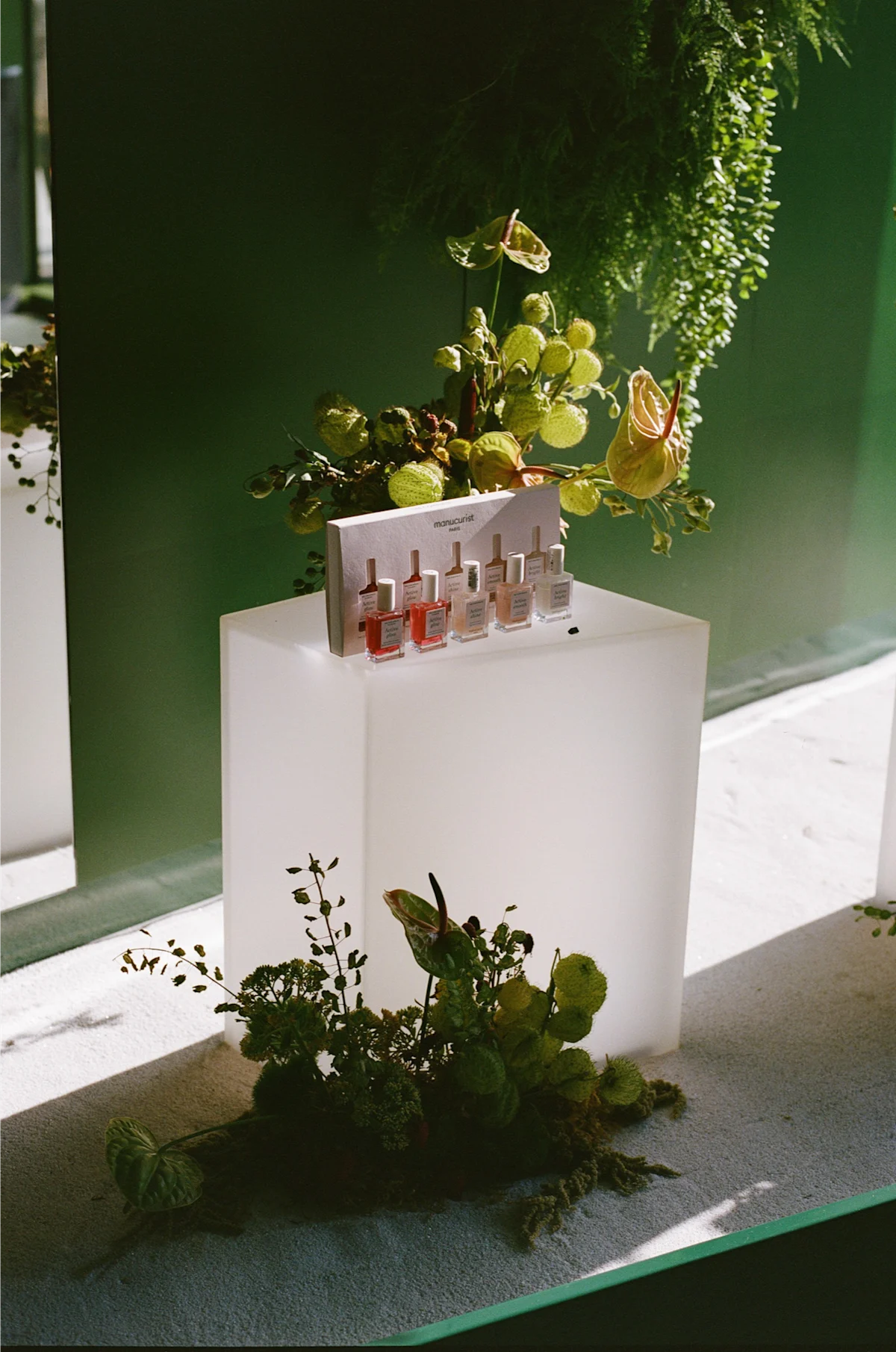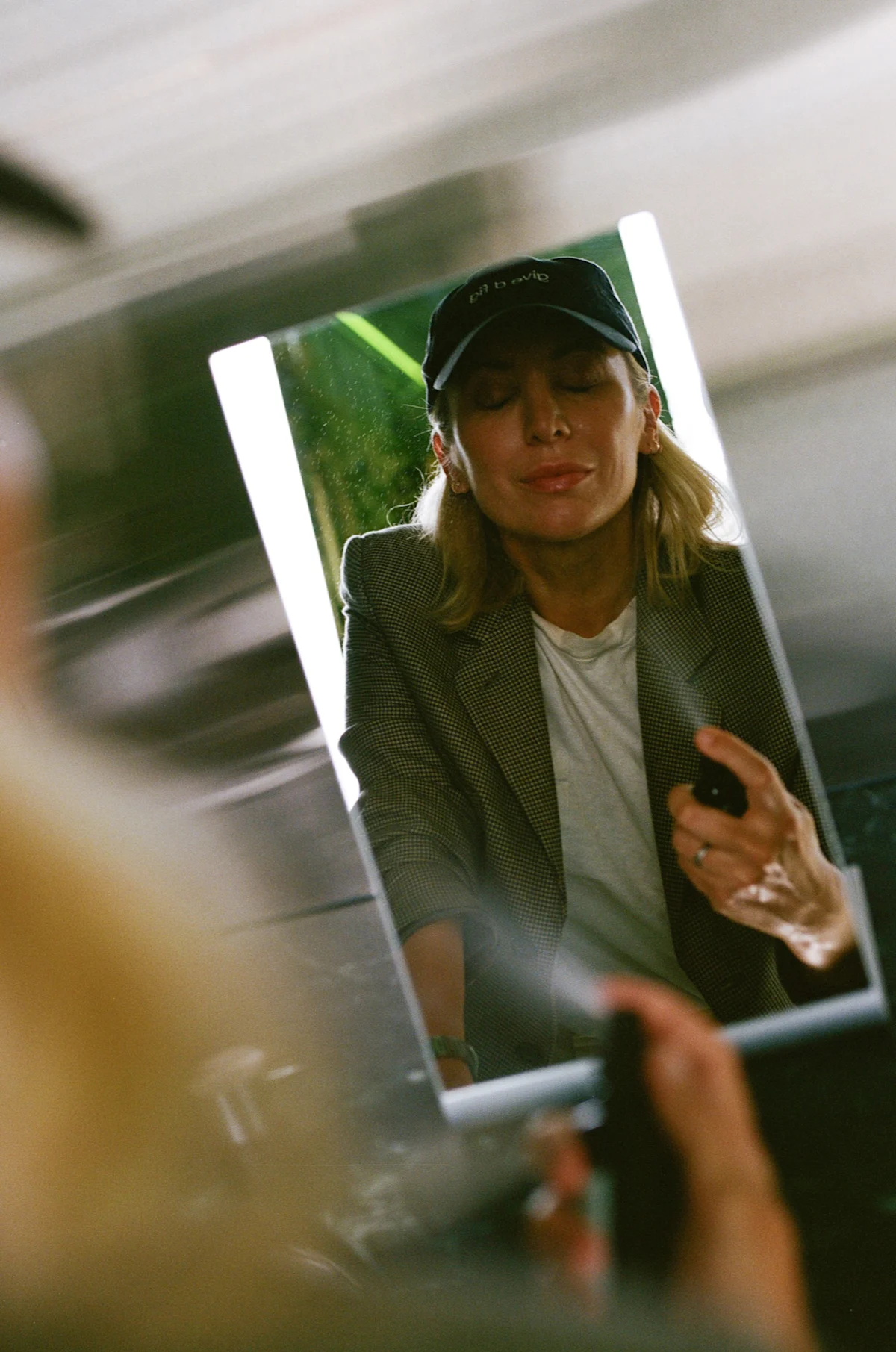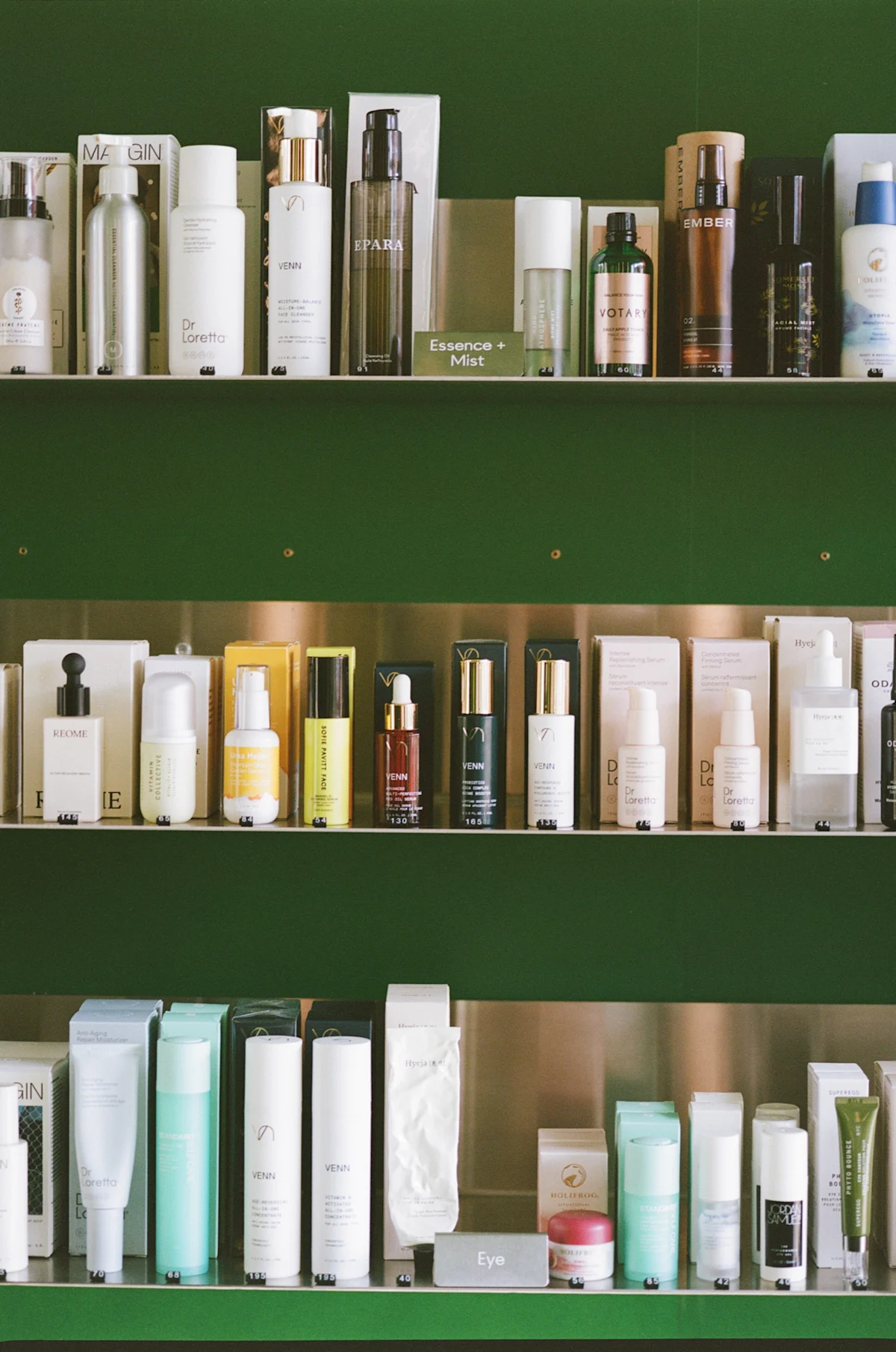Skincare is a crowded business. But with Formula Fig, JJ Walsh has managed to disrupt the industry with an innovative concept: half-hour, high-tech treatments with a focus on community. Five years since co-founding the company in Vancouver, the former Conde Nast editor and brand consultant has expanded Formula Fig to seven locations between Vancouver, Toronto, and Los Angeles, where she’s now based. Walsh is obsessed with providing exceptional customer service—she sees herself as a hospitality entrepreneur, not a skincare maven. To that end, she doesn’t look to other competitors in the space, but rather, to hotels, restaurants, and even retail. That’s how Walsh decided to offer memberships, and why each location throws weekly community events. Her entrepreneurial journey has expanded her definition of creativity beyond branding to include product development and financial modelling. In the process, she has rewritten the rules of experiential retail.
Tell me about where the idea for Formula Fig came from. When and why did you launch?
⎯⎯⎯ My background is in publishing. So I was an editor at Condé Nast [in London, UK] for over a decade. Love branding, brand stories, luxury. Towards the end of my tenure at Condé Nast, I started a consultancy on the side for a lot of the luxury retailers—when Louis Vuitton came to New Bond Street, Selfridges, Harrods, Harvey Nichols—during that time, where e-commerce was coming in. I very much love how you can connect with the consumer and how you can marry brand and retail, which we now call experiential retail, which I didn't realize it was called at the time.
I had just had my second child and I was still working at Condé Nast and my agency. My husband got an opportunity to work in Canada for a company called Aritzia. I'd never heard of it, I'd never been to Canada in my life. Arrived in Vancouver, and it was quite different from what I was used to. So I remember thinking, I know no one. Everyone's wearing Lycra and flat shoes—I was not wearing that—and carrying a green juice where I carry a black coffee.
So I was like, okay, what are people doing really well here? What's very exciting? And obviously it was wellness. So I started looking at companies there, what they were doing, and how well they were operating. I was a big consumer of skincare and thought okay, I've got to create something. I need to create community. I need that East Coast efficiency and efficacy. And, above all, I really believe how spaces make you feel. I think that was lacking. So I, naively perhaps at the time, looking back on it—I feel a little bit sick looking back on it—created Formula Fig.
What was the gap in the market that you saw?
I think no one was doing experiential service meets retail. It comes back to how we as humans operate. We like to be very social. We like to try things, test things, experience things. So for me, that service-meets-retail piece was huge. And it wasn't just putting a bit of paint on a medspa and rebranding it. It really was changing the environment of how you get treatment, how you shop.
Our bread and butter is hospitality. It's treatments. We are providing a service and guests are paying for that service. So we have to look at the hotels, and even the luxury stores. It is like a very carefully choreographed dance. And so we put a lot of emphasis on training our team in that way.

You really see the difference, I think, in businesses that don't prioritize customer service and businesses that do.
⎯⎯⎯ It's also one of our challenges. How do you train that? Or how do you show it? Like, how do you give team members the opportunity to see others who are doing that? Yeah, I think hotels are a great example. Whenever you go to a good hotel, you feel so looked after, you don't feel badgered, you feel cossetted, don't you? We want it to be the same at Formula Fig.
I feel like so many people look to their direct competitors and think, okay, what are they doing that I can do? But you’re looking outside your sector and borrowing from adjacent industries.
⎯⎯⎯ I always do, from the get-go. Again, we're going through another exercise now that’s a branding exercise. I don't want to get any other skincare. Don't show me any skincare. I want to look at fashion. So obviously my background is fashion and jewellery. I think they're incredibly good at partnerships and collaborations. Especially the older houses, they know what their tenure is and how they appeal to so many different age groups, and how you can buy into those brands. I very much look to fashion predominantly, and to restaurant hospitality groups to see what they're doing well.
What are some examples that really stood out to you?
⎯⎯⎯ In fashion, obviously, the Bottegas, Hermès. All those. I think they're very long-term brands, but they still have this current appeal. You can buy a wallet or lipstick, but still, you know, you're buying it so you don't have to buy the Birkin. I very much appreciate that and how brand is at the core. I think sometimes in this space, especially in retail and service in the beauty world, we forget about brand. It comes down to price and product. Which I think is not a long-term play in hospitality. I mean, from the Ivy Group, how they just rolled it out and they've been so successful, especially in the UK. We've got an Ivy on every high street right now, and they started from this luxury restaurant in central London, and now they're everywhere. Even Soho House. They created that membership club, and this FOMO of wanting to be part of it early on. I think it was incredibly clever how they did that. So obviously we have a membership, but we're less exclusive, I'd say.

Why the memberships?
⎯⎯⎯ Well, we started right from the get-go with memberships. We wanted to appeal to many people at affordable luxury prices. Typically I'd say, in our space, especially in the spa space, they do a lot of packages. And of course, business-wise, that's very smart. But we really wanted to create a repeat community. I feel it can be quite exclusionary. Not a lot of people have a couple of thousands to drop. I think a lot of our guests, as we all do, really think about where our spend is going. And so membership makes it far more accessible because you can then plan your monthly expenses rather than lump sum going out.
I think it all comes down to consistency. Typically, in skincare, we are results-driven. So we created memberships to make it that much easier for you. We guide you and we want to see your face frequently. I feel we've really built this local community that's really nice. When I moved to Vancouver, I knew no one. It was during that, towards the end of the fall or the autumn when it gets properly wet and no one goes out, I was like, ‘Where is everyone in the city?’ And so if I can create spaces where, even for 30 minutes, I feel that I am being recognized, I'm sure others feel that way, too.
Brand is so important, as you say. How did you develop the core principles of your brand? And what does Formula Fig stand for?
⎯⎯⎯ We have our slogan, 'Give a Fig', and I really believe that we have to care. And so within our team, you've got to care about your teammates. We have to care about each other. [Co-Founder] Anita Chanand I very much believe in championing our team and unlocking doors. We really do care about our team. You don't know what you don't know. I very much give a fig about striving for excellence as well. It's not perfection; it's definitely excellence. I think whatever price point, we should always have that barometer to it as well. I feel very strongly about that.
Operationally, we have the four Cs. Curiosity: I always give the analogy of if you're at a dinner party and no one asks you a single question, you feel like crap, and I don't understand how we go through life and not be curious about others. And that's giving a fig. Collaboration: You can see how I talk about partnerships, how it's so important, and within the team as well, how we collaborate is vital. Communication for me is huge: be to the point, be specific and make sure how you communicate efficiently and effectively. And the last point is Consistency: you can see consistency across everything we do, we're consistent with it.
What's the thing that really keeps you motivated?
⎯⎯⎯ I just love problem-solving and creating. Creating is not just branding.reating is problem-solving, in whichever industry you're in. And I just love that I get to play. I get to work all the way from finance and modelling out and figure out the best way forward, all the way to, you know, developing new products. That's creating.
Who was your first hire? When did you know this was going to work?
⎯⎯⎯ My first hire was Anita Chan, our CFO and co-founder. I know what my strengths are. I knew that for a long-term business, I needed the most incredible financial support. Actually, I did stalk her a little bit and I tracked her down. I went for a coffee and she said, “You either want me to invest, which I can't, or you want me to come work with you.” So she took the job.
And then when did I think it would start working? I'd say about five months in, I was like, we're really onto something. And I think what I thought were the priorities of the company very quickly came to me that they weren't.

What was that shift for you? Was it the customer loyalty or—
⎯⎯⎯ When you’re just starting out, you’re so preoccupied about how it looks. And of course, brand is very important, but you don't know until you do that it's not so much about what my team is wearing on their feet—it is very much about repeat business.
You mentioned you focus on hyperlocal messaging, like events for each store versus doing paid digital ads.
⎯⎯⎯ At our Ossington location, for example, people want to gather. So we probably host about four events there a week. I think a huge superpower is being a connector. It's not a direct sale, it’s about getting involved in the Formula Fig community.
What was the hardest thing about starting your own business?
⎯⎯⎯ When I first started, I was so enthusiastic about it, and I was quite upset when people would shoot it down. But I have much thicker skin now. My father said to me, “JJ, it's going to come down to how much you can take.” And I'm thinking, it's fine, I've got resilience.
–East Room is a shared workspace company providing design-forward office solutions, authentic programming and a diverse community to established companies and enterprising freelancers. We explore art, design, music, and entrepreneurship. Visit our News & Stories page to read more.